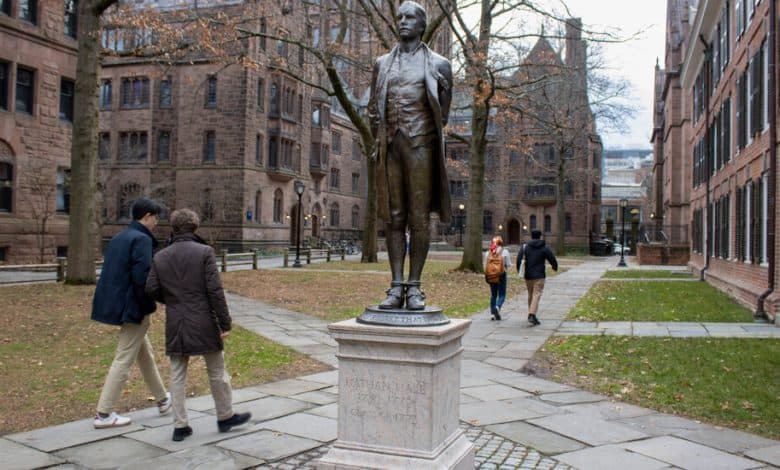Yale Apologizes for Its Connections to Slavery

Yale University on Friday issued a formal apology for its early leaders’ involvement with slavery, accompanied by the release of a detailed history of the university’s connections to slavery and a list of what it said were initial steps to make some amends.
The announcement came more than three years after Yale announced a major investigation into the university’s connections to slavery, the slave trade and abolition, amid intense national conversations about racial justice set off by the murder of George Floyd. And it frames what the school’s leaders say will be a continuing commitment to repair.
“We recognize our university’s historical role in and associations with slavery, as well as the labor, the experiences and the contributions of enslaved people to our university’s history, and we apologize for the ways that Yale’s leaders, over the course of our early history, participated in slavery,” the university’s president, Peter Salovey, and the senior board trustee, Josh Bekenstein, said in a message to the university community.
“Acknowledging and apologizing for this history are only part of the path forward,” they continued. The university is also creating new programs to fund the training of public schoolteachers for its home city, New Haven, Conn., whose population is predominantly Black. And Yale will expand previously announced research partnerships with historically Black colleges and universities across the country, with a “significant new investment” to be announced in coming weeks.
Unlike Harvard, which in 2022 committed $100 million to a “Legacy of Slavery Fund,” Yale did not announce an amount for all its initiatives.
David W. Blight, the Yale historian who led the historical research, said in an interview that the purpose of the effort was not “to cast ugly stones at anybody,” but to present the university’s history honestly and unflinchingly.
